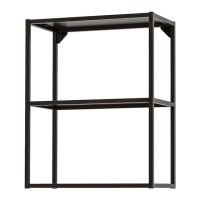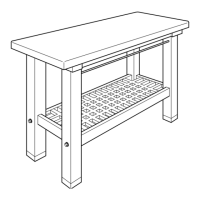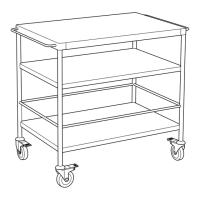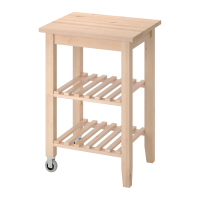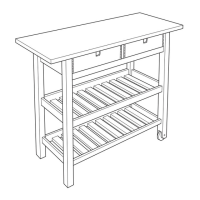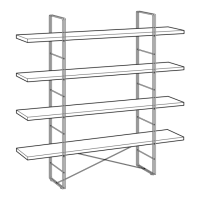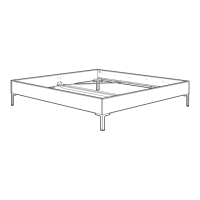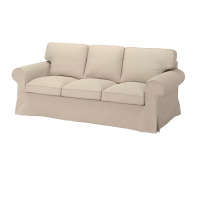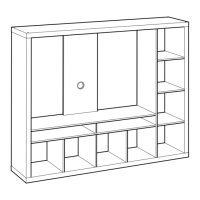4
Whether you’re replacing an old kitchen or starting
from scratch, it’s key to understand that the proper-
ties of the room dictate how complex or smooth your
installation process will be. With this in mind it’s impor-
time to prime and paint your walls and change your
point since you will need to make markings and drill
holes in the walls. If you plan to have tiles or similar,
it’s best to install these after the cabinets and worktop
have been installed.
Assess your walls
Since your walls will hold the weight of your kitchen
cabinets and frames, start by evaluating the quality
and construction of your walls.
Marking cabinet positions
from your plan and that your electricity, water, gas and
ventilation connections are where you want them to
be.
Preparing your room
Check that your walls are strong enough to hold the
to install your cabinet onto a stud or support beam.
If you have a light wall construction with gypsum
(drywall) wall panels supported by studs, it’s not
board alone (not even using drywall anchors).
In order to provide proper support for the cabinets,
you need to add horizontal structural support
between the studs. As this requires the proper skills,
be sure to contact a professional for help.
the wall that is strong enough to carry the load of
cabinets.
Instead, you need to locate the studs inside the wall
the same position as the cabinets of the old kitchen,
it is important to secure that the walls have been
properly reinforced.
Find out what type of wall you’ll be working with. For
solid core materials like masonry that are hard to
penetrate and can support great loads, you need
special anchors and screws.
The wall studs, normally located 30, 45 or even 60 cm
apart, can carry the load of your wall cabinets.
and position of the studs won’t align.
It’s important that you use the proper type and
minimum screw thickness is 4.6 mm and the screw
needs to penetrate at least 38 mm into the wall stud
or solid core material. For advice, contact your local
specialised dealer.

